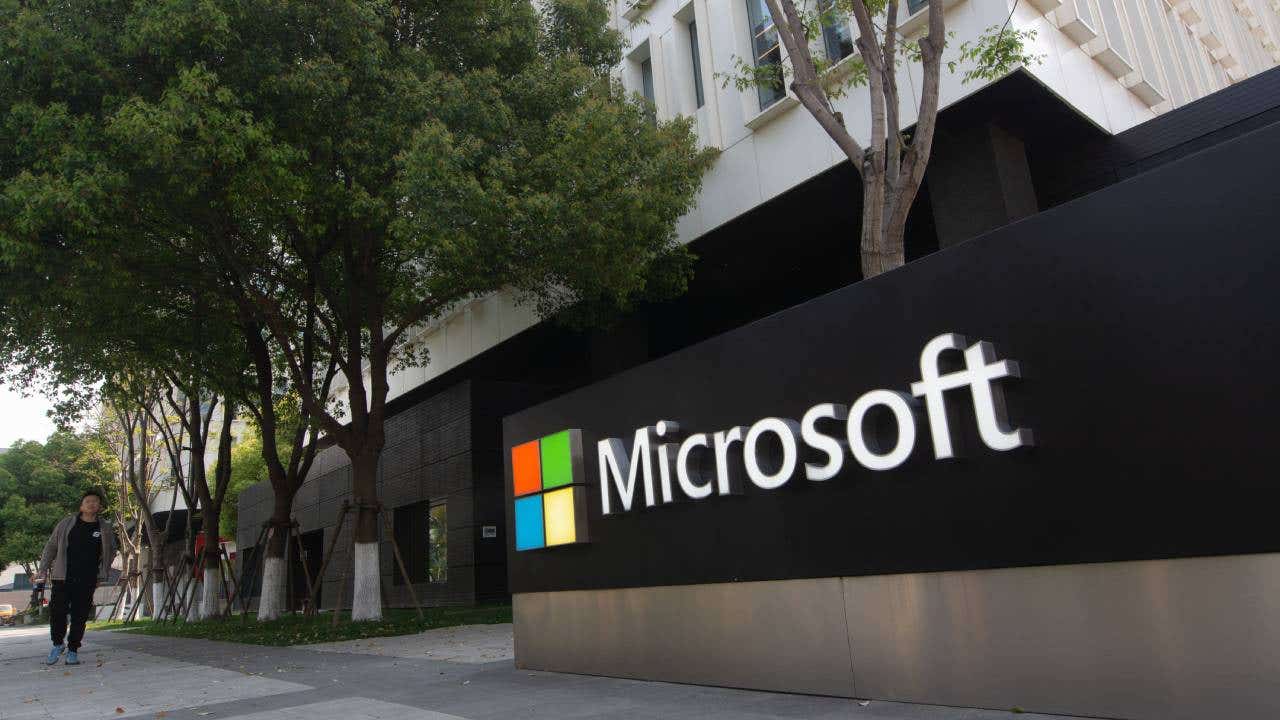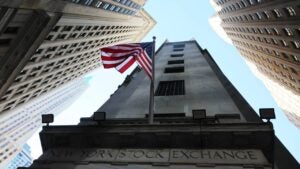Trillion-dollar companies: 10 most valuable mega-cap stocks

The most valuable companies in the world have grown to impressive heights in recent years, with 10 publicly traded companies trading at market capitalizations of roughly $1 trillion or more. All but one of the companies come from the tech sector, with many offering products and services that consumers use every day. Several of them also made it onto Bankrate’s list of top-performing stocks.
The top spot has gone back and forth between Microsoft, Apple and Nvidia in recent months, behind a business boom driven by demand for artificial intelligence (AI). Nvidia became the first company to reach a $4 trillion market value in July 2025, just over two years after it crossed the $1 trillion mark for the first time. In September 2025, Google-parent Alphabet crossed the $3 trillion mark for the first time.
Warren Buffett’s Berkshire Hathaway joined the trillion-dollar ranks in August 2024 and is the only non-tech company on the list. Tesla rejoined the list in the second half of 2025 after a sell-off to start the year brought it below the $1 trillion mark.
Here are the largest publicly traded companies and members of the trillion-dollar club.
List of trillion-dollar companies
*Market cap data as of Sept. 15, 2025.
1. Nvidia (NVDA)
Semiconductor company Nvidia crossed the trillion-dollar mark in May 2023, and quickly climbed to the top spot as investors bid up its shares in anticipation of a sustained boom in AI. Nvidia designs advanced chips that are used in AI systems and its shares jumped over 170 percent in 2024. The company generated more than $130 billion in revenue during its fiscal 2025.
- Market cap: $4.3 trillion
- Stock price: $177.18
2. Microsoft (MSFT)
Microsoft is best known for its suite of software offerings, including Microsoft Office. The company generated $245 billion in sales during its 2024 fiscal year. Microsoft also owns the Xbox gaming system and closed its $69 billion acquisition of video game maker Activision Blizzard in October 2023. The tech titan is also the largest backer of ChatGPT-owner OpenAI.
- Market cap: $3.8 trillion
- Stock price: $512.90
3. Apple (AAPL)
Apple designs and makes a variety of consumer tech products and has one of the best-known brands in the world. Apple generated more than $201 billion in iPhone sales during its fiscal 2024, and total sales reached $391 billion. Warren Buffett’s Berkshire Hathaway is one of the company’s largest shareholders and Buffett has repeatedly praised the tech giant’s business, though he slashed Berkshire’s stake in 2024.
- Market cap: $3.5 trillion
- Stock price: $236.70
4. Alphabet (GOOG and GOOGL)
Alphabet is the parent company of search giant Google and generates the majority of its more than $350 billion in revenue from online advertising. Google also has a cloud business, owns YouTube and has a variety of other ventures it classifies as “other bets.”
- Market cap: $3.0 trillion
- Stock price: $248.77
5. Amazon (AMZN)
Amazon is the largest online retailer in the world and has also built a sizable cloud business in Amazon Web Services. Amazon generated total sales of roughly $638 billion in 2024, including more than $107 billion from AWS. Amazon co-founder Jeff Bezos was the fourth-richest person in the world as of September 2025, according to Bloomberg.
- Market cap: $2.5 trillion
- Stock price: $232.51
6. Meta Platforms (META)
Social media giant Meta Platforms rejoined the trillion-dollar club in January 2024, but it’s no stranger to the list. Meta previously hit a $1 trillion market cap back in 2021, when it was still known as Facebook. Meta generated about $165 billion in total revenue in 2024 and its stock jumped more than 60 percent that same year. In addition to being the parent company of Facebook, Meta also owns Instagram and WhatsApp, and is one of several tech giants betting big on artificial intelligence.
- Market cap: $1.9 trillion
- Stock price: $763.01
7. Broadcom (AVGO)
Broadcom designs, develops and supplies semiconductor and infrastructure software solutions and has benefited from the boom in AI spending. The company generated $51.6 billion in revenue during its fiscal 2024, boosted by 220 percent growth in AI revenue. Broadcom’s stock surged following its fourth-quarter 2024 results, pushing its market cap past $1 trillion.
- Market cap: $1.7 trillion
- Stock price: $360.50
8. Taiwan Semiconductor Manufacturing Co. (TSM)
Taiwan Semiconductor Manufacturing Company is the largest semiconductor foundry in the world and has a dominant position in manufacturing the most advanced chips for customers such as Nvidia and Apple. The company is looking to expand its global presence outside of Taiwan to places including the U.S. and Germany as it looks to limit its potential geopolitical risk from China.
- Market cap: $1.4 trillion
- Stock price: $261.08
9. Tesla (TSLA)
Tesla is an electric vehicle maker run by Elon Musk, the richest person in the world as of September 2025, according to Bloomberg. The company has big ambitions in transportation and artificial intelligence, and has announced plans for an autonomous fleet of robotaxis and robovans.
- Market cap: $1.4 trillion
- Stock price: $422.09
10. Berkshire Hathaway (BRK.A and BRK.B)
Berkshire Hathaway is the conglomerate run by legendary investor Warren Buffett. The company has interests in a wide array of industries including insurance, railroads, retailing and manufacturing. Berkshire’s investment portfolio includes stakes in companies such as Apple, Coca-Cola (KO), American Express (AXP) and Chevron (CVX).
- Market cap: $1.1 trillion
- Stock price: $490.11
What is market capitalization and what does it mean?
A company’s market capitalization is equal to the total value of its outstanding shares. Market cap can be calculated by multiplying a company’s stock price by its shares outstanding. For example, a $10 stock with 1 billion shares outstanding would have a market cap of $10 billion.
Market cap is used to measure what a company is worth at a given time.
Editorial Disclaimer: All investors are advised to conduct their own independent research into investment strategies before making an investment decision. In addition, investors are advised that past investment product performance is no guarantee of future price appreciation.
Why we ask for feedback Your feedback helps us improve our content and services. It takes less than a minute to complete.
Your responses are anonymous and will only be used for improving our website.






